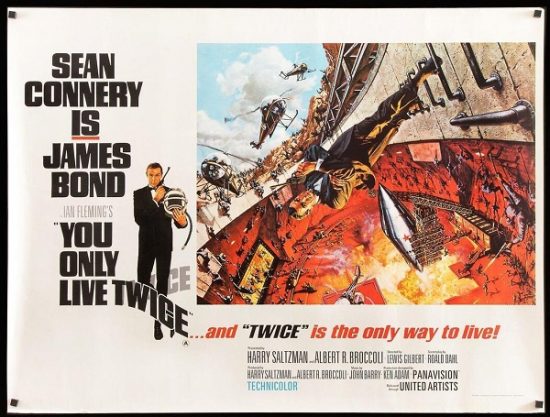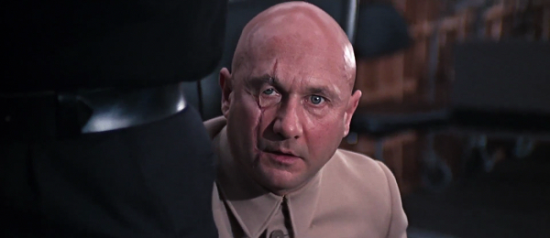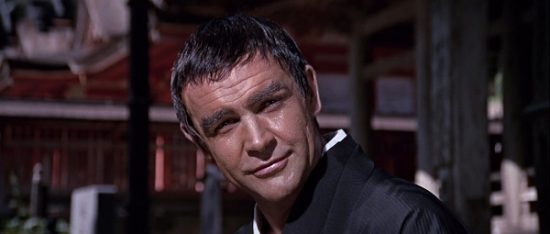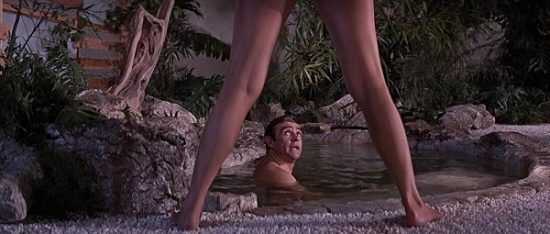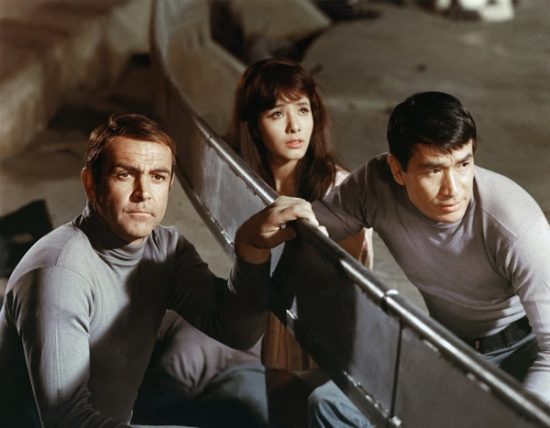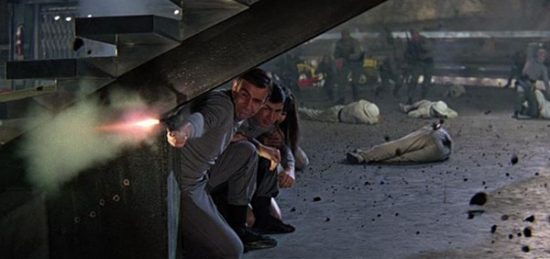Bond Blog: You Only Live Twice – A James Bond Retrospective
It’s been only five years since Sean Connery debuted as 007 in Dr. No but in his fifth outing You Only Live Twice the scale of the movie and the phenomenon has become so great that Ian Fleming’s original source novels are nowhere near enough to create what audiences have come to expect.
With a budget of over $10 million and a gross of $110 million, the film would premiere in front of Queen Elizabeth II, establishing the franchise as an important British institution. With Britain having emerged from the Second World War a broken post-imperial power, Bond indulged in a national power fantasy. 007 made us relevant on a global level even as that relevancy faded in reality. The Yanks would turn up occasionally as the Man of a Thousand Faces Felix Leiter, but it was only in a support role for the plucky British agent. In this latest film former Axis-power Japan is the setting. On his first screenwriting job, famed children’s author Roald Dahl jettisoned Fleming’s plot, complaining of its episodic fairly plotless nature, and effectively rewrote Dr. No. From his base in the heart of a volcano, Blofeld (Donald Pleasance) is hijacking US and USSR rockets in the hope of triggering a nuclear conflict. 007, having faked his death, is put on the job. This involves him becoming Japanese and honing his Ninja skills under the tutelage of Tiger Tanaka (Tetsurō Tamba), the head of the Japanese secret service.
With a third Bond director joining the fray – Lewis Gilbert, who had a proven hit with Alfie! – You Only Live Twice doesn’t innovate so much as inflate the scale. Ken Adams’ design for Blofeld’s lair is massively impressive; the action sequences have a kinetic brutality and John Barry’s score is gorgeous, with a refreshing break from the bombast in Nancy Sinatra’s song. Connery has one foot out of the door, having already decided to retire from the role and producers already searching for his replacement. This was a decision confirmed by the fan mania surrounding the film which can even be seen in several shots where crowds of onlookers are held back as filming goes ahead. Connery’s end-of-term mood can be felt when Charles Grey (who would later play Blofeld in Diamonds are Forever) gets his signature Martini mix the wrong way round ‘stirred not shaken?’ and Bond gives a nonchalant ‘perfect’ like it ever really mattered.
The space-age rocket kidnap scenes have dated very poorly and there is more than a smack of Thunderbirds to the space ships and gadgetry and the base itself. But the role of technology is becoming more of a theme with the franchise. Japan is seen as already advanced on Britain with its clean and punctual underground railways and its efficient secret service. Blofeld likewise is a big fan of his machines and his gadget-heavy base. Meanwhile, once more provided for by Q, Bond has a Heath Robinson amateurishness about him. This is best exemplified by Little Nellie, a weird gyrocopter, which like the jet pack feels oddly pointless. The filming proved a nightmare with the machine difficult to control and dangerous to film, costing a cameraman his foot when it was chopped off by the rotor blades of a helicopter below him. The sequence is exciting but I imagine on viewing it the cameraman could be forgiven for wondering whether it was really worth it.
Of course, once more it is worth noting the casual racism of the 007 films. From his opening line about Chinese girls tasting different, Bond gives us this weird paradox of someone perfectly happy to bed women of all races while at the same time maintaining his own prejudices. Of course, the most offensive scenes come when 007 is made up in full yellowface to pass for a Japanese fisherman with eye prosthetics, yet another wig and a shaved chest. The racism is mixed in with a fascination and admiration for Japanese culture and one of the best scenes of the film comes when Bond visits a Sumo wrestling competition. There’s a real flavour of the place and the atmosphere; the travelogue Bond. Japan is a place where industry and business are booming. Blofeld might be the villain but perhaps the real danger for the UK and Bond is Tiger and his secret army.
As has now become a final act must in Bond films, a large-scale battle must occur and here the volcano base earns its keep. The insane rappelling from the ceiling of the base is jaw-dropping in its dangerousness. In his autobiography, future Bond and Indiana Jones stuntman Vic Armstrong describes participating in the stunt and the very real dangers involved. Some of those dangers were due to a careless attitude to safety. The result however is a truly exciting climax, with Connery in the midst of the action and a genuinely explosive conclusion. Pleasance looks good as Blofeld but, facial scar aside, he’s a little colourless and the blond henchman is only dynamic once he’s in the water with the piranhas.
Fleming’s novel concluded with Bond suffering from amnesia in a Japanese fishing village, effectively believing his own cover story. It was a Reichenbach Falls kind of ending, allowing the writer the possibility of retiring his most popular creation. Although Connery was due to retire, the film opts for a comedy coitus interruptus with a submarine intervening at the appropriate moment. 007 looked in a healthy state. A formula had been established, and although the star was to depart, the surrounding team that had been forged had raised the collective level with every film. Surely, the next film based on one of Fleming’s stronger novels – the delayed On Her Majesty’s Secret Service – would prove that Bond was bigger than Connery.

